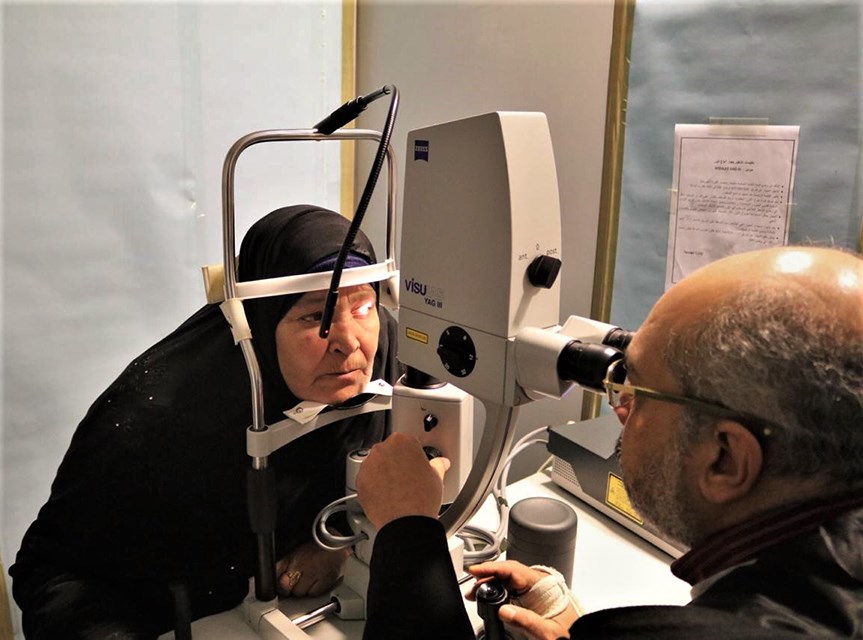When he was growing up in Egypt, the son of an ophthalmologist, he volunteered with organizations working to stamp out preventable blindness and that passion has stuck with him.
Nayel graduated from Quest in 2018.
While there, his 'question' — which is like a major at other universities — was: "How can we ensure equal treatment of infectious diseases worldwide?"
One of the major causes of blindness in Egypt is an infectious disease called.
Nayel said while quality health care is available in Egypt, it is only accessible to those who can afford it.
"It is definitely good if you have money," he said over the phone from Baltimore, Maryland, where he is attending medical school.
"[But Egypt] is not a big enough system to be able to accommodate the amount of people who don't have money."
Trachoma, therefore, is a disease of poverty.
Nayel developed it himself while in Cairo but simply went to an eye doctor and got antibiotic drops, which cured it.
Those in rural parts of Egypt may go years without even visiting a doctor, he said, and they can end up in severe pain from the disease and can ultimately go blind.
While a student at Quest, Nayel completed an internship in Germany at an ophthalmology clinic that crystallized the problem for him.
There he realized the issues he often saw at home in Egypt with trachoma were not present there — at all.
"It is completely preventable and even after patients get blinded by the disease, it is completely reversible," he said.
After leaving Quest, he joined forces with fellow Quest alumni Matilda Taylor, who graduated in 2019, to form the Collaborative Vision Foundation.
The non-profit organization funds vision-restoring surgeries and works to raise awareness about preventable blindness.
They soon added two other Quest alumni, Katie Verigin and Sidney Sponer to the foundation.
It has funded 15 eye surgeries in Egypt so far. Next, the group aims to fund an additional 15 surgeries for patients in need.
"We partnered with a clinic in Cairo that volunteers their time and volunteers their efforts to screen people with trachoma and diagnose them officially,” he explained.
Patients next get sent for surgery, which the foundation pays for.
Each surgery costs about $250.
"For someone who doesn't have the privilege or the money to go see a doctor, they get infected by this bacteria, then it keeps progressing for 10 to 15 years until it reaches the state where they are blind. That is how neglected this disease is: someone would have to not have access to healthcare for 15 years to get blinded by something that could be easily be treated by anti-bacteria drops the moment they got it."
The Foundation has launched a GoFundMe campaign —— to sponsor more surgeries.
Not surprisingly, Nayel is working toward being an ophthalmologist.For more information check out online.




